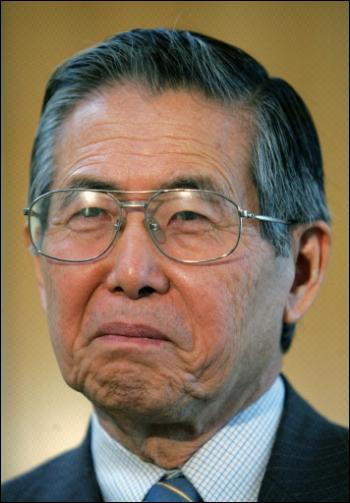Fujimori's self defence in trial spurs criticism in Peru
 Lima - Former Peruvian president Alberto Fujimori's self- defence effort as he stands trial for 25 killings and two kidnappings generated widespread criticism Thursday in Peru, with claims he used the legal platform to deliver political discourse.
Lima - Former Peruvian president Alberto Fujimori's self- defence effort as he stands trial for 25 killings and two kidnappings generated widespread criticism Thursday in Peru, with claims he used the legal platform to deliver political discourse.
In his defence allegations Wednesday, Fujimori, 70, who ruled Peru from 1990-2000 before faxing in his resignation from Japan, stressed he is innocent and recounted the difficult context in which he governed the South American country, with a staunch defence of the anti-terrorist policies he applied at the time.
"I know that I am innocent, and I know I have the majority support of the people," he said.
Fujimori - who has both Peruvian and Japanese citizenship - has been held in prison for 18 months, after being extradited from Chile in 2007. Public prosecutors are requesting that he be sentenced to 30 years in jail for the massacres at La Cantuta and Barrios Altos in 1991-92 and for two kidnappings in 1992.
The daily El Comercio Thursday called his effort "not the classic self-defence of someone who is standing trial, because Fujimori turned the court room almost into a political platform from which he made a speech that was addressed more to the television audience than to the court."
The Peruvian daily said Fujimori praised his government's achievements and noted that his children, Keiko and Kenji, would follow on his "legacy of peace and development."
He did not specifically discuss the charges, and was expected to do that Friday, when he appears in court to end his defence.
"I am strengthened because none of those witnesses and that evidence has been able to incriminate me. And they have not been able to do it because I am innocent," Fujimori claimed.
Political commentators further rejected the way in which the former president explicitly promoted his daughter Keiko, currently a legislator and a likely presidential candidate in Peru's 2011 election.
"His speech was political because he is being tried for applying an alleged dirty war policy that he denies," argued his lawyer, Cesar Nakazaki.
"I had to govern from hell, not from the palace," Fuijimori argued.
"History will end up acknowledging me, because the people will continue to recognize me as the president who gave back to them justice and peace."
Outside the court, some 300 Fujimori supporters - most of them apparently poor and wearing the characteristic orange clothing - cheered for their leader. They had arrived there by bus, and they used the event to campaign for Keiko Fujimori.(dpa)